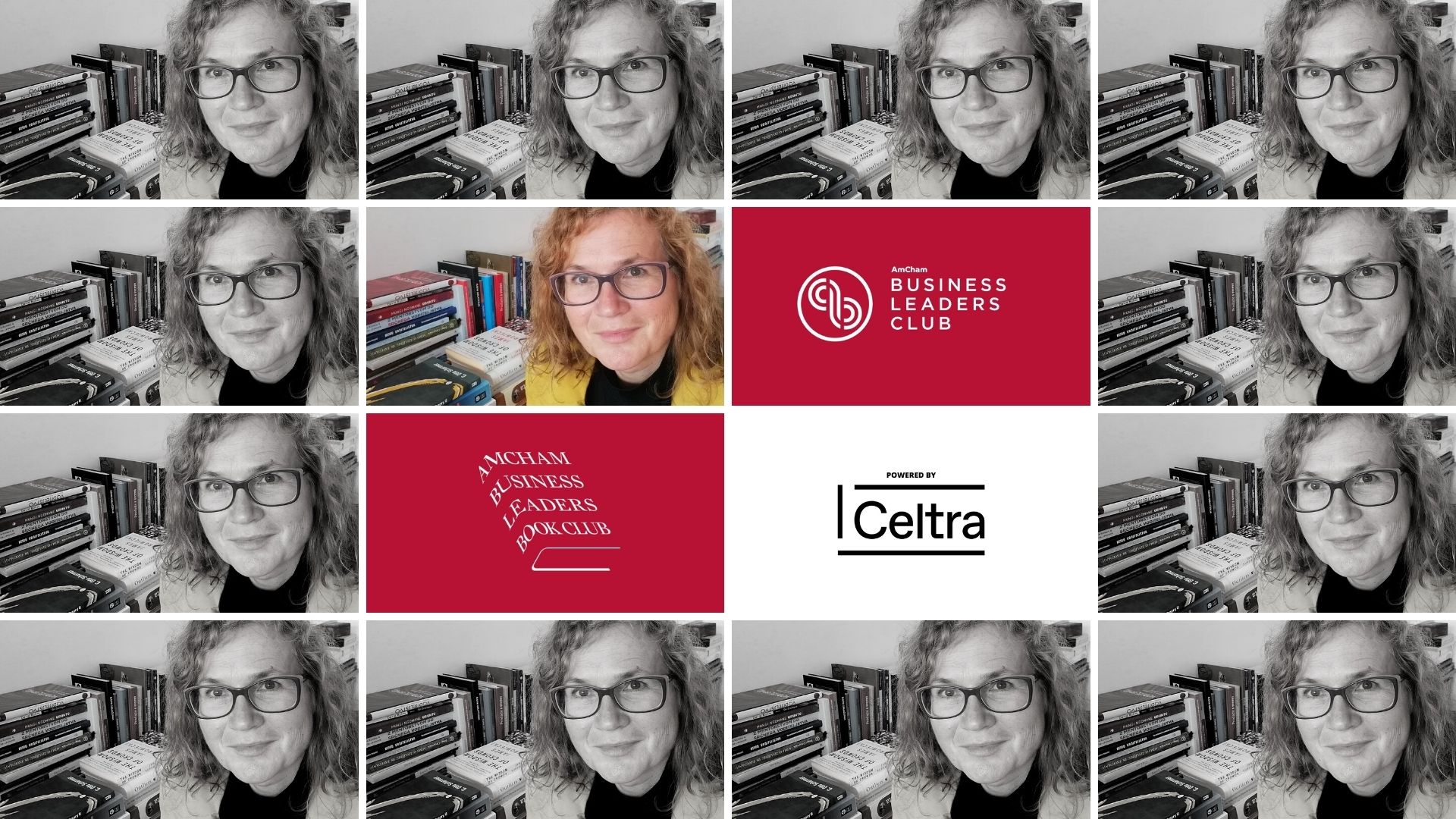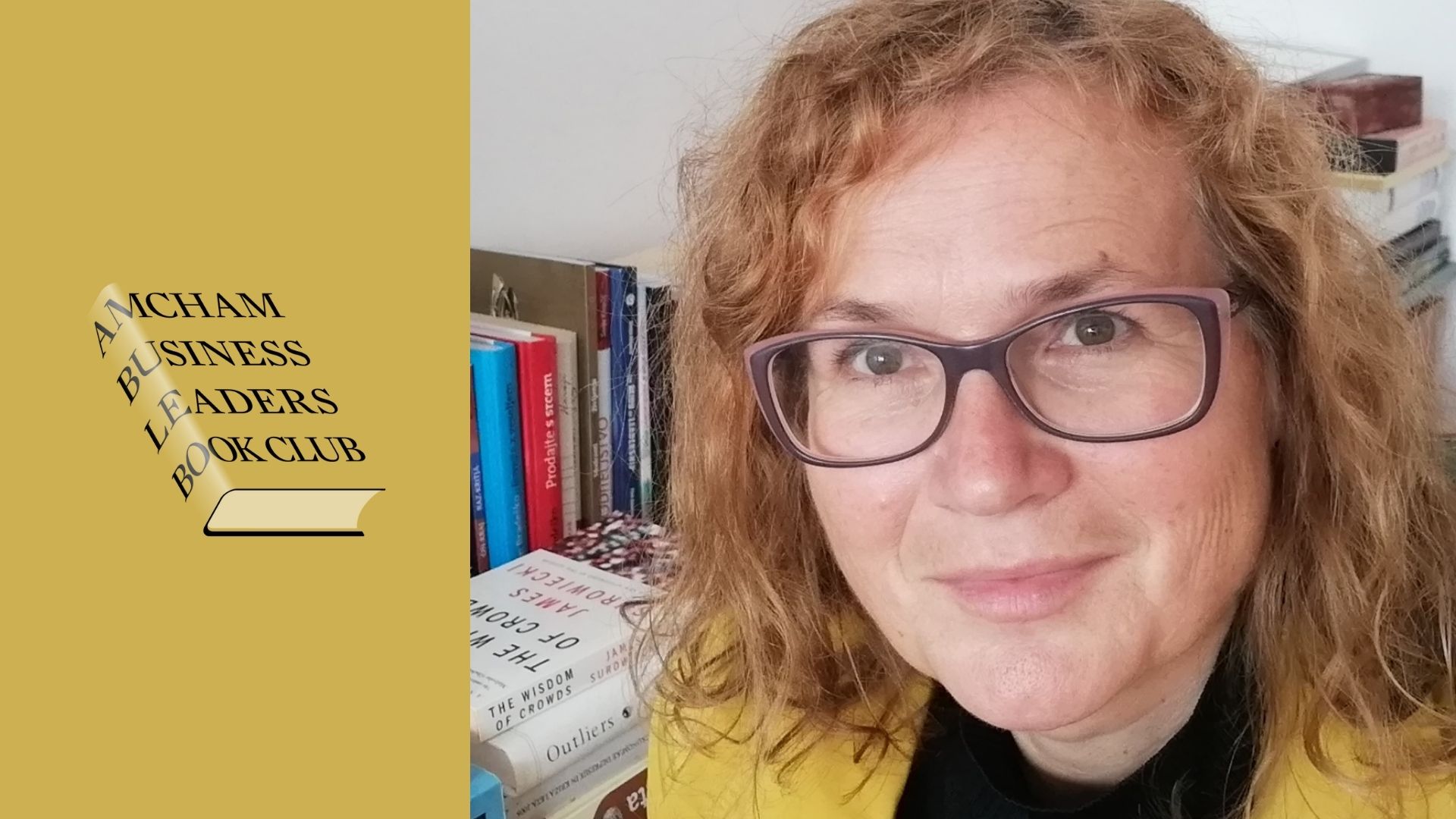Sonja, what does reading mean to you?
Reading means a way to explore new worlds, along with pure entertainment, education, a lot of things.

Sonja, what does reading mean to you?
Reading means a way to explore new worlds, along with pure entertainment, education, a lot of things.
What’s your favorite book? What did you take away from it?
That’s the hardest question. My gut instinct is to say The Alchemist. It’s hard to answer that question, I’d choose from 10 books from a range of genres, all of which helped me make progress. I read The Alchemist many years ago, and it helped me progress by showing me how important the path you travel is and not the destination. Then there’s Spiritual Intelligence (Danah Zohar), another transcendental book in terms of understanding the importance of developing your spiritual IQ for comprehensive success. Surely a work of fiction finds itself onto the list of books that have had a strong influence, e.g. The Forty Rules of Love by Turkish author Elif Shafrak, along with her second book – extremely interesting reads that lend you new insights. Her last books taught me that it’s never too late to ask whether this really is my life or whether there’s something greater out there that would be of far greater appeal. But mostly they taught me the true power of love. I remember from that book the sentence that the whole universe is within us, a wonderful thing to take away. It’s interesting to read the same book several times – at different periods of your life. The book is the same, but you’ve changed, you notice different things, understand them differently, and your circumstances, your perception changes.
Do you take notes and if so how?
Yeah, I have my own system when I read a book. I have a special relationship with books; I can’t write in them, so I use sticky notes to mark interesting parts. When I finish the book, I go back and revisit those sticky notes. Some of them no longer have the same gravitas and I just skim over. But those that still resonate with me go onto a special blog that I write, “The Wealth of Books”, to which only I have access. I began writing it soon after I finished my master’s (2003) and since I had to systematize my literature for referencing in my thesis, I just kept up the same system for all the books I read, including fiction works. Before then I used to take my notes partly in a notebook, partly elsewhere, on a scrap of paper.
How important is a good cover?
That’s an interesting experience – not once has a cover ever led me astray. Of course it grabs your attention, but when I pick up a book, I always read about the author and flip a few pages. If those few sentences are attractive, then the book comes with me. The cover has one job – to attract you – with its color, font, graphics. As an author [Sonja is the author of Leadership and The AEIOU of Leadership, and the co-author of the Guide to the AEIOU of Leadership; you can find her work here, ed.] I pay a lot of attention to the cover – when I published my first book, I wanted the cover to encourage and invite the reader to collaborate and to accept responsibility. On purpose I commissioned an energetic picture for the cover and completely surrendered to the imagery created by the designer. The cover of The AEIOU of Leadership is also a symbol, a graphic representation of the 5 continents from which came the words of the indigenous peoples, which is what the abbreviation AEIOU stands for – here as well it was the designer who came up with the idea that the background should be blue. The guide, which I wrote in collaboration with Ksenija Špiler Božič, was written with love – so it was obvious that the cover was going to be green. My latest book was purple, the color of the spiritual world.
After what I’ve heard so far, this is probably a silly question – hard copy or e-book and why?
Absolutely hard copies; I can’t read e-books, because I miss the feeling of holding a book in my hand and I can’t use my sticky notes. I always have several books open at a time – right now I have Aroha from New Zealand, Plan B, The History Book (Big Ideas Simply Explained), as well as several Slovenian books, including a local history about the Podšentjur Manor in Podkum, which talks about my ancestors.

How to you keep up with your to-read list and what is the next book on it?
I keep my list on my phone; whenever I come across a book that I feel I just need to read, I write down the title and author, and I grab it when the chance arises. There’s a good anecdote here, from when I made up a list of books I recommend for the magazine Manager. Later I got an email from a Mr. Reader, who said he’d finished everything on the list and asked what he should read next. I replied immediately and sent him a new list. We even met one time at an event, and he introduced himself saying, “I am Mr. Reader.” [laughs] Otherwise on my public blog [http://www.i-leaders.net/, ed.] I used to occasionally post a list of books that shaped me somehow.
What do you say to people who tell you they have no time to read (especially fiction)?
I don’t preach, I even somewhat understand, because we have such a case in our family. My daughter, for instance, doesn’t want to read, but resorts to other sources of info. It’s a shock, as everyone else is a bookworm.
How has the pandemic affected your relationship with books?
I think I’ll have read more books this year than in years past.
Who is the next bookworm you recommend for an interview, and what book would you gift them?
I suggest Dr. Krištof Kranjc. And I already have a book recommendation for him: Slovenija Čudežna (Slovenia the Wondrous), by Marko Pogačnik. I recommend it because he (Pogačnik) shows Slovenia in a whole new light, one that opens up new views on specific places, regions, and the country as a whole. That book awakened within me even more awareness about the uniqueness and wealth of the country we live in, and piqued my interest in places I’ve never visited, even though they are easily reachable without a carbon footprint.